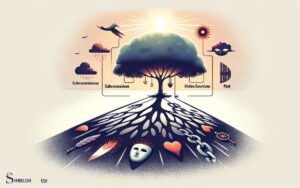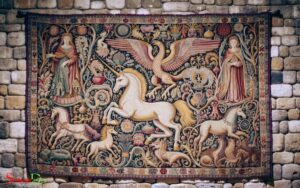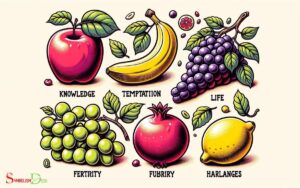What Is the Symbolic Meaning of a Donkey? Humility!
The donkey is a symbol with a multifaceted meaning, often associated with humility, service, patience, and stubbornness.
Its presence in history, religion, and culture has imbued it with various interpretations, ranging from an emblem of peace to a representation of the working class.
The symbolic meaning of the donkey includes:
- Humility and Service: Traditionally, donkeys are seen as humble beasts of burden, symbolizing service and unassuming nature.
- Stubbornness and Determination: The donkey’s reputed stubbornness also represents a strong-willed and determined character.
- Religious Significance: In Christianity, the donkey is linked to Jesus’ triumphant entry into Jerusalem and symbolizes peace.
- Literature and Folklore: Donkeys have been featured in fables and stories, often as wise or foolish characters, such as in Aesop’s fables.
- Political Symbolism: The donkey is famously used as a symbol of the Democratic Party in the United States, representing the common man.
Example: In the Bible, Jesus riding a donkey during Palm Sunday has been interpreted as a sign of humility and peace, contrasting with a conquering king who would ride a horse.
Uncover the layers of meaning behind the donkey’s image, from ancient tales to modern political arenas.

Key Takeaway
Historical and Cultural Significance
Throughout history, donkeys have played significant roles in various cultures and civilizations. They’ve been valued for their strength, endurance, and ability to thrive in harsh environments, making them indispensable for transportation, agriculture, and trade.
- In ancient Egypt, donkeys were revered for their role in the economy and their association with the god Ra.
- In Greek mythology, donkeys were linked to Dionysus, the god of wine, fertility, and ecstasy. The Bible also mentions donkeys numerous times, portraying them as loyal and hardworking animals.
- In medieval Europe, donkeys were depicted in art and literature as symbols of humility and patience.
Their historical and cultural significance is a testament to their enduring impact on human society, shaping perceptions and inspiring various forms of artistic expression.
This rich historical tapestry sets the stage for exploring their religious and mythological associations.
Religious and Mythological Associations
Many religions and mythologies incorporate the donkey as a symbol with significant meaning.
In Christianity, donkeys are associated with Jesus’ entry into Jerusalem and are seen as a symbol of peace and humility.
Additionally, in various mythological traditions, donkeys often represent stubbornness, endurance, and transformation.
Religious Significance of Donkeys
The religious significance of donkeys is evident in various cultures and belief systems, where they’re often associated with symbolism and mythological representations.
In religious and mythological contexts, donkeys hold diverse meanings:
Religious Associations:
- In Christianity, donkeys are linked to the biblical story of Jesus’ entry into Jerusalem, symbolizing peace and humility.
- In Hinduism, the donkey is associated with the god of death, Yama, and is sometimes seen as a symbol of ignorance and laziness.
Mythological Representations:
- Greek mythology depicts donkeys as companions to gods and creatures, representing endurance and the ability to overcome obstacles.
- In Mesopotamian mythology, the donkey is linked to the goddess of love, Ishtar, symbolizing both the divine and the earthly.
Myths and Donkey Symbolism
Donkeys hold significant mythological and religious symbolism, with their associations ranging from companionship to gods in Greek mythology to their role in the biblical narrative of Jesus’ entry into Jerusalem.
In Greek mythology, donkeys were associated with Dionysus, the god of wine, revelry, and fertility. They were revered for their companionship and playful nature, often seen as loyal and trustworthy animals.
In the Christian tradition, the donkey is symbolically linked to the narrative of Jesus’ humble entry into Jerusalem, where he rode a donkey as a symbol of peace and humility. This act is seen as fulfilling the prophecy of the Messiah in the Old Testament.
The donkey’s role in these myths and religious narratives has contributed to its enduring symbolic significance in various cultures. This symbolism extends to literature, where donkeys often represent themes of humility, steadfastness, and service.
Moving on to the next subtopic, ‘donkey symbolism in literature.
Donkey Symbolism in Literature
Literature has often portrayed the donkey as a humble hero, embodying attributes of patience, perseverance, and hard work.
Additionally, the donkey has been symbolized as stubbornness, serving as a source of comedic relief or as an obstacle that characters must overcome.
Moreover, donkeys in literature have been used to represent transformation, showcasing the potential for growth and change within the characters’ journeys.
Donkey as Humble Hero
Portrayed as a humble hero, donkeys have been symbolized in literature as steadfast and reliable companions to the protagonist.
In various literary works, donkeys often embody traits such as patience, endurance, and unwavering loyalty, making them essential to the hero’s journey.
- This humble animal serves as a symbol of perseverance and hard work, often carrying the protagonist through challenging terrains and situations.
- Their unwavering nature provides a stark contrast to the more glamorous and celebrated steeds, highlighting the value of humility and steadfastness.
- Donkeys also serve as a reminder that true heroism often lies in quiet strength and resilience, rather than flashy displays of power.
A Symbol of Stubbornness
Symbolizing more than just stubbornness, the donkey in literature embodies a complex symbolism that often challenges traditional perceptions of this animal.
While commonly associated with obstinacy, the donkey’s portrayal in literature delves deeper, reflecting resilience, determination, and unwavering loyalty.
In George Orwell’s ‘Animal Farm,’ the donkey, Benjamin, symbolizes a stoic and cynical attitude, offering a critical perspective on the dystopian society.
Similarly, in Cervantes’ ‘Don Quixote,’ Sancho Panza’s donkey represents practicality and common sense in contrast to Quixote’s idealism.
Through these examples, the donkey becomes a metaphor for the complexities of human nature, challenging readers to reconsider their preconceived notions.
This multifaceted representation in literature invites audiences to explore the nuanced traits of the donkey beyond mere stubbornness, showcasing the animal’s depth and significance in storytelling.
Furthermore, the donkey’s role in literature extends beyond obstinacy, often representing transformation in stories.
Representing Transformation in Stories
In stories, the donkey often serves as a symbol of transformation, embodying the potential for change and growth.
This symbolism is frequently portrayed through the following ways:
Physical Transformation: Donkeys are commonly depicted as humble and unassuming creatures, but they often undergo physical transformations in stories.
This could include the donkey transforming into a more majestic or powerful form, symbolizing a personal metamorphosis or an individual’s journey towards self-realization.
Role Reversal: In literature, donkeys are sometimes portrayed as characters that undergo role reversals, transitioning from downtrodden or underestimated beings to unexpected heroes.
This represents the potential for individuals to defy expectations and rise to greatness, serving as a powerful symbol of personal transformation.
As the donkey represents transformation and growth in stories, it seamlessly transitions into the subsequent section about ‘political and social symbolism’.
Political and Social Symbolism
The donkey has long been used as a symbol in political and social contexts, representing humility, hard work, and the common people’s struggles.
In politics, the donkey is often associated with the Democratic Party in the United States, embodying traits of determination and perseverance. Socially, the donkey symbolizes the working class and the burdens they carry.
This humble animal serves as a powerful representation of the everyday person, their resilience, and their contributions to society.
| Symbolism | Representation |
|---|---|
| Humility | Acknowledgment of limitations and the value of modesty |
| Hard Work | Dedication and perseverance in the face of challenges |
| Common People’s Struggles | The resilience and strength of the working class |
| Determination | Persistence and steadfastness in political and social movements |
Donkey Symbolism in Art and Folklore
Artistic Depictions
- Representations of humility, patience, and strength
- Association with biblical stories in religious paintings
Folklore and Fables
- Portrayal as hardworking and reliable companions
- Symbolism of perseverance and determination
Psychological and Dream Interpretations
Building on the previous subtopic, psychological and dream interpretations of the donkey emphasize its representation of perseverance and determination.
In psychological terms, the donkey appearing in dreams or as a symbol can signify the dreamer’s ability to endure hardships and overcome obstacles. Dreaming of a donkey may also indicate a need for patience and steadfastness in pursuing goals.
Below is a table summarizing the psychological and dream interpretations of donkeys:
| Psychological Interpretation | Dream Interpretation |
|---|---|
| Symbol of perseverance | Sign of patience |
| Representation of determination | Need for steadfastness |
| Emblem of endurance | Overcoming obstacles |
Understanding the psychological and dream interpretations of the donkey can provide insight into one’s subconscious mind and the challenges they may be facing.
Transitioning into the subsequent section about ‘modern interpretations and popular culture’, it’s important to recognize how these traditional symbolisms continue to impact contemporary perspectives.
How Does the Symbolic Meaning of a Feather Compare to the Symbolic Meaning of a Donkey?
Feathers and donkeys carry different symbolic meanings. Feathers often represent freedom, truth, and enlightenment, while donkeys symbolize patience, humility, and hard work. Both hold significant symbols in various cultures and traditions. The symbolic meaning of feathers is often associated with spirituality and growth, while the symbolic meaning of a donkey signifies humility and perseverance.
Modern Interpretations and Popular Culture
In contemporary society, a growing number of individuals view donkeys as symbols of humility and hard work, reflecting their enduring presence in popular culture and modern interpretations.
This symbolism is evident in various forms of media and art, where donkeys are often portrayed as steadfast and reliable characters.
Modern Interpretations
- Donkeys are often depicted as loyal companions in contemporary literature and film, showcasing their unwavering dedication and determination.
- In modern art, donkeys are frequently used to symbolize the value of perseverance and resilience, resonating with audiences who appreciate their steadfast nature.
Conclusion
The donkey holds a rich and diverse symbolic meaning across various cultures, religions, and literature.
From representing humility and stubbornness to being a symbol of political movements and social justice, the donkey is a complex and multi-faceted symbol.
Its presence in art, folklore, and even in dreams adds to its enigmatic and enduring appeal. The donkey continues to captivate and inspire modern interpretations and popular culture, making it a timeless symbol of significance.






